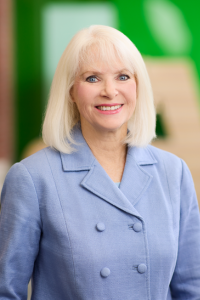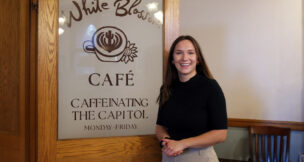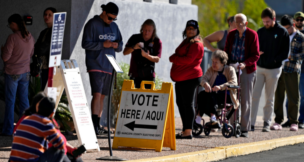Effective financial literacy programs can empower a generation
Katherine Cecala//September 10, 2024//
Effective financial literacy programs can empower a generation
Katherine Cecala//September 10, 2024//
“What’s the one thing you wish you learned in school?” That’s a question many Americans answer with “personal finance,” “how to manage money,” or something similar. In fact, research by Bank of America and USA Today shows that for young adults, “How to invest,” “How to do taxes,” and “How to manage monthly bills” were the top answers to that question – not surprising given the current financial struggles facing so many.
As rising costs outpace personal incomes, the fact that only about half of Americans are considered “financially literate” compounds an already challenging issue. Research by Payroll.org found that 78 percent of Americans say they are living paycheck-to-paycheck, while a survey by AARP shows that 20% of those over 50 have no retirement savings, and 61% are concerned they haven’t saved enough for retirement. The earlier people start learning the basic concepts and principles of money management, entrepreneurship and career readiness, the more prepared they will be to navigate even the most challenging of financial circumstances. It’s a win not only for them, but also the communities around them.

However, not all financial literacy programs are alike. At Junior Achievement, we view financial literacy as “the other literacy.” Just like reading or writing, we all deal with money on a near-daily basis. Yet too often, financial literacy programs in Arizona consist only of supplemental learning experiences in middle or high school, usually embedded in other existing requirements, that skim the surface of basic concepts. Nobody would be expected to read a book or write a term paper after one semester of lessons on reading or writing, yet that’s essentially what happens with financial literacy education.
As a result, there has been criticism about the efficacy of financial literacy education as it currently exists. These criticisms are often tied to students’ limited exposure to the curriculum and the quality of the learning materials, which aren’t always addressed with mandates, especially when they are unfunded. In these situations, educators may rely on using materials they find for free online, which don’t always yield the best outcomes.
Junior Achievement employs a pathways approach to teaching financial literacy to young people. By “pathways,” we mean that JA programs are designed to engage students on the subject over multiple grades, from their first days in kindergarten, throughout their K-12 years, preparing them for the transition to post-secondary education or work. The learning experiences are hands-on and experientially based, including the use of real-world simulations. They are designed to be comprehensive and align with national and state educational standards to ensure the content is relevant and meets educational requirements, and are accompanied by extensive support materials to help teachers deliver the curriculum effectively.
The impact of this unique approach is clear. Research shows JA alumni are more likely to finish college, find a satisfying job or career, and start a business. They report purchasing their first home at 29, compared with the national average of 34, and 84 percent of JA Alumni agree that their Junior Achievement experience helped with their financial literacy.
Now is the time to make quality financial literacy programming a more consistent and prominent part of a young person’s life. The desire to learn is there – research by Junior Achievement and the firm Big Village found that 68% of teens between 13 and 17 would be “likely” to take a class on financial literacy topics (money management, personal finance, etc.). However, only 31% of teens surveyed said that they had access to these kinds of courses at school. By giving students the tools to increase their chances of achieving economic security as adults, we’re empowering future generations to thrive.
Katherine Cecala is the executive director of Junior Achievement of Arizona. To learn more about Junior Achievement of Arizona and ways you can get involved, visit: www.jaaz.org.














































